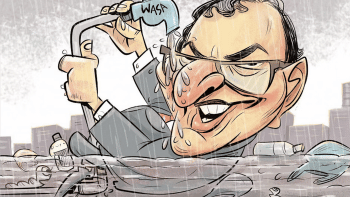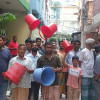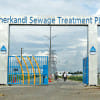Cleanse Dhaka Wasa of corruption

An investigation by the Department of Cooperatives into corruption at the Dhaka Wasa Employees Multipurpose Cooperative Society—which uncovered concrete evidence against 46 officials and employees embezzling Tk 332 crore—is yet another glaring testament to the pervasiveness of corruption in the country. According to a report by Prothom Alo, in 1996, Dhaka Wasa decided to hire contractors to increase revenue from water bill collection. As part of the initiative, the aforementioned cooperative society began working as contractor in exchange for a 10 percent commission on the total bill. It was made up of then-employees of Dhaka Wasa, raising the question as to why Wasa would proceed with a plan that provided additional benefits to employees who were already on its payroll.
However, this was merely the tip of the iceberg. As revealed by the investigation, officials of the society's managing committee then misappropriated funds received for its operating costs. With this elaborate scheme, Dhaka Wasa has practically allowed these officials to steal public money which should have gone into ensuring clean water and proper drainage in Dhaka. As such, it cannot escape responsibility for this failure.
In recent years, Wasa has repeatedly made headlines for corruption, irregularities, and a persistent failure to provide services. In recent months, it reappointed its long-running managing director for an unprecedented sixth time, despite widespread allegations of corruption and organisational misconduct against him. Wasa has also been accused of being a major river polluter. The quality of water it supplies remains questionable. Meanwhile, a megaproject related to the Dasherkandi treatment plant has largely failed to pay off due to the lack of connected sewerage pipes. Despite all this, there has been little effort to make Wasa accountable for its failings.
Unfortunately, corruption remains widespread in almost all government institutions, even at a time when the country is undergoing a crippling economic crisis. It's painful to see how public money is being squandered through corruption and mismanagement while ordinary citizens suffer amid severe inflation and astronomical prices of daily essentials. We urge the authorities to take firmer action against public-sector corruption, and establish transparency and accountability in all government institutions. The corruption revealed at the Dhaka Wasa Employees Multipurpose Cooperative Society must also be properly addressed.


 For all latest news, follow The Daily Star's Google News channel.
For all latest news, follow The Daily Star's Google News channel. 










Comments